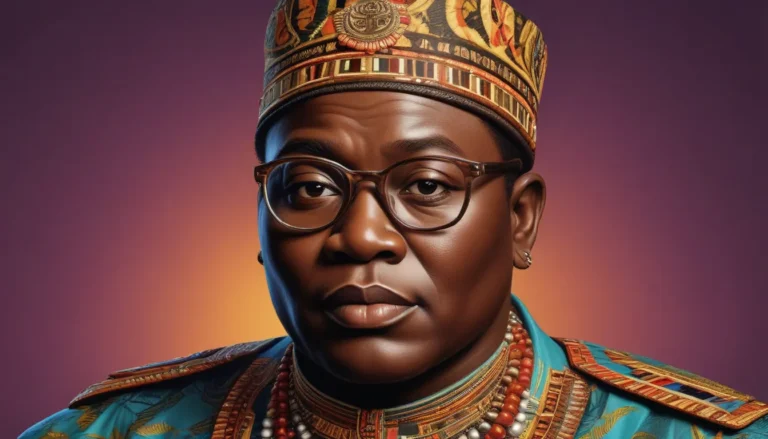The images in our articles may not match the content exactly. They are used to grab your attention, not to show the exact details in the text. The images complement the text but do not replace it.
Dizzy Gillespie, born John Birks Gillespie, was a legendary figure in the world of jazz. Known for his virtuosic trumpet playing, unique style, and charismatic personality, Gillespie left an indelible mark on the genre and helped shape its evolution. With a career spanning over six decades, Gillespie’s contributions went beyond his musical prowess. He was recognized as a pioneer of bebop, a genre that revolutionized jazz in the 1940s. Gillespie was not only a remarkable musician but also a tireless advocate for civil rights, using his platform to raise awareness and promote equality. In this article, we will delve into 20 fascinating facts about the life and career of Dizzy Gillespie, providing insight into the man behind the music.
Key Takeaways:
- Dizzy Gillespie’s impact on jazz is undeniable, from pioneering bebop to mentoring aspiring musicians. His legacy continues to inspire and captivate jazz enthusiasts worldwide.
- Known as “The King of Jazz Trumpet,” Dizzy Gillespie’s talent, charisma, and humanitarian efforts left an indelible mark on the world of music. His contributions to jazz are celebrated and studied globally.
The Journey of Bebop:
Known for his virtuosic trumpet playing and unique sense of style, Dizzy Gillespie was a key figure in the development of bebop, a fast-paced, improvisational style of jazz that emerged in the 1940s.
A Playful Persona:
His real name was John Birks Gillespie, but he was nicknamed “Dizzy” because of his playful and unpredictable personality. Throughout his career, Dizzy Gillespie embraced his unique persona, inspiring generations of musicians with his talent and larger-than-life personality.
Humble Beginnings:
Gillespie was born in 1917 in Cheraw, South Carolina. His humble beginnings in the small town of Cheraw laid the foundation for his remarkable journey as a jazz legend. He started playing the trumpet at the age of 12, showing a natural talent for music early on.
Influences and Innovations:
Gillespie was heavily influenced by Afro-Cuban music and became fascinated with the rhythms and melodies of this genre. This influence can be heard in his compositions and performances. He co-founded the bebop collective known as the “Billy Eckstine Orchestra,” which included jazz legends like Charlie Parker and Sarah Vaughan.
A Champion of Integration:
Gillespie played a significant role in integrating jazz bands, actively fighting against discrimination and promoting integration during a time of racial segregation. He was known for his signature horn-blowing style, which included puffing out his cheeks while performing.
Iconic Compositions and Collaborations:
Gillespie’s composition “Salt Peanuts” is considered a bebop anthem, showcasing his creativity and innovation. Throughout his career, he collaborated with jazz greats such as Charlie Parker, Ella Fitzgerald, and Duke Ellington, leaving a lasting impact on the genre.
Recognition and Awards:
Gillespie’s contributions to jazz earned him 14 Grammy Awards, recognizing his talent and innovation. He was known for his charismatic stage presence and entertaining showmanship, captivating audiences with his energetic performances.
Global Ambassador:
Gillespie was an ambassador for jazz music, traveling the world to spread the beauty and complexity of jazz and raise awareness of its significance. He mentored many aspiring musicians, inspiring them to pursue their dreams and push the boundaries of jazz.
Enduring Symbols of Innovation:
His trademark bent trumpet became an iconic symbol of his career, reflecting his unique style and innovation. He received the United Nations Peace Medal in 1989 for his humanitarian efforts and was inducted into the Grammy Hall of Fame and the DownBeat Hall of Fame.
Lasting Legacy:
Gillespie had a profound impact on the development of modern jazz, shaping the course of the genre and inspiring future generations of musicians. His talent and contributions earned him the nickname “The King of Jazz Trumpet,” solidifying his status as a true jazz legend.
The Ongoing Influence:
His music continues to be celebrated and studied by jazz enthusiasts worldwide, with his legacy living on through his timeless compositions that inspire and captivate audiences globally.
FAQs:
Q: When was Dizzy Gillespie born?
A: Dizzy Gillespie was born on October 21, 1917.
Q: What are some of Dizzy Gillespie’s most famous songs?
A: Some of Dizzy Gillespie’s most famous songs include “A Night in Tunisia,” “Salt Peanuts,” and “Manteca.”
Q: How did Dizzy Gillespie contribute to the development of bebop?
A: Dizzy Gillespie was one of the key figures in the development of bebop, showcasing his virtuosic trumpet playing, complex harmonies, and innovative compositions.
Q: Did Dizzy Gillespie collaborate with other famous jazz musicians?
A: Yes, Dizzy Gillespie collaborated with many famous jazz musicians, including Charlie Parker, Ella Fitzgerald, and Duke Ellington.
Q: Was Dizzy Gillespie involved in social activism?
A: Yes, Dizzy Gillespie was actively involved in social activism, advocating for civil rights and fighting against racial discrimination.
Q: What is Dizzy Gillespie’s legacy?
A: Dizzy Gillespie’s legacy is marked by his groundbreaking contributions to jazz, virtuosic trumpet playing, and commitment to social justice, solidifying his place as one of the greatest jazz musicians of all time.
Dive into the vibrant world of jazz legends like Dizzy Gillespie, each contributing a unique and captivating story to the tapestry of music history. Explore the spiritual journey of saxophonist John Coltrane, the rebellious spirit of bassist Charles Mingus, and the resilience of trumpeter Arturo Sandoval. The legacy of these extraordinary musicians is a testament to the enduring power of jazz music and its ability to inspire and uplift audiences around the globe.
Our commitment to delivering trustworthy and engaging content is reflected in our dedication to providing accurate and credible information. Each fact on our site is contributed by real users, ensuring a diverse range of insights and perspectives. Rest assured that our editors meticulously review each submission to maintain the highest standards of accuracy and reliability. Explore, learn, and discover with confidence as you delve into the fascinating world of jazz history.






